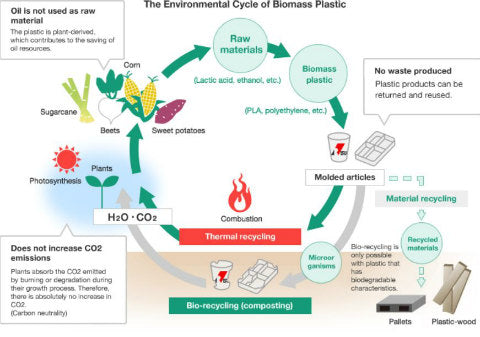We're totally against using bioplastics in our natural skin care packaging though we know many companies are in favour of this.
Here's why.
Simplicité founder, naturopath and herbalist David Lyons' research shows we just couldn’t do that to our planet or the environment.
Bioplastics may indeed be made from ‘renewable’ biomass, but in order to grow biomass in the first place, forests and native vegetation are cleared to obtain more farming land.
Corn is the most common source of biomass; in Fiji they’re flattening forests to plant palm oil trees for use as biomass.
David says, "I call biomass ‘bio-massacre’ because of the initial clearing of vegetation required."
The environmental impact of bioplastics is often debated, as there are many different metrics for "greenness" (e.g., water use, energy use, initial deforestation, biodegradation).
Looking at the entire chain of production, also consider the petroleum products required to power farm machinery, irrigate crops, produce fertilisers and pesticides, to transport crops, to process raw materials.
Despite claims made, petroleum must be used to produce bioplastic
Producing one kilogram of starch-based bioplastic still uses 500g of petroleum and consumes almost 80% of the energy required to produce a traditional polyethylene polymer.

This graph is not correct - petroleum IS used to produce bioplastic
There are environmental impacts from bioplastics, including methane emissions from landfills containing biodegradable plastics.
There is concern that the creation of a global bioeconomy required to produce bioplastic in large quantities could contribute to an accelerated rate of deforestation and soil erosion, and could adversely affect water supplies.
A 2010 study states that corn-based plastic ranked higher in environmental defects than the main products it replaces, such as HDPE, LDPE and PP. In the study, the production of corn-based plastics created more acidification, carcinogens, ecotoxicity, eutrophication, ozone depletion, respiratory effects and smog than the synthetic-based plastics they replaced.
The American Carbon Registry has also released reports of nitrous oxide caused from corn growing is 310 times more potent than CO2 as a green-house gas.
Pesticides are also used in growing corn-based plastic.

